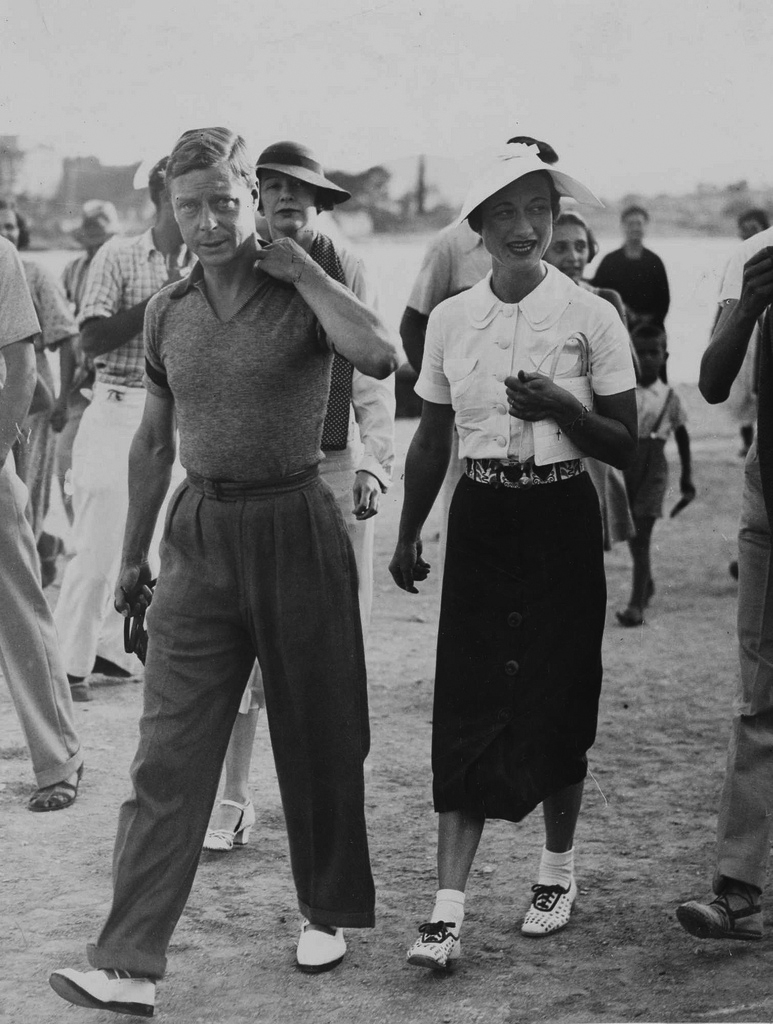Originally published in March 2023.
A crisis that did more good than harm.
The further it recedes into history, the more the abdication of Edward VIII seems like a fairly minor blip in the history of the modern British monarchy. Yet it was perhaps the decisive moment for the monarchy in the 20th century. For by replacing Edward VIII with George VI, and later his daughter Elizabeth II, the abdication ensured that the monarchy continued to develop along the lines established from the later years of Queen Victoria onwards – as an institution that was traditional, ceremonially splendid and politically powerless. Had Edward VIII remained king from 1936 until his death in 1972, it might have been a very different story.
Few heirs to the throne have been as popular in their youth as was Edward, Prince of Wales. His extended tours of the British Empire in the early 1920s, and his evident concern for the veterans of the Great War and the unemployed, helped to win him a huge following. There were many in the post-war generation who welcomed his modern, informal approach and admired his flair for public relations. By contrast, many within the Establishment tut-tutted, including the Prince’s own father, George V, who commented that, “The boy will ruin himself within 12 months”, and secretly hoped that “nothing will come between Bertie [the future George VI] and Lilibet [the present Queen] and the throne”.
“I have found it impossible to carry the heavy burden of responsibility and to discharge my duties as King as I would wish to do without the help and support of the woman I love”
George V’s comments were uncannily prescient. Less than 12 months after his accession, Edward abdicated when his government, led by Stanley Baldwin, refused to allow him to marry Wallis Simpson, an American double divorcee. Baldwin insisted that no such thing as a morganatic marriage was known to English law, and that he must choose between Mrs Simpson and the throne. Edward preferred to abdicate rather than renounce Mrs Simpson and his farewell, broadcast on 11 December 1936, became one of the most famous speeches in British history: “I have found it impossible to carry the heavy burden of responsibility and to discharge my duties as King as I would wish to do without the help and support of the woman I love.”
“He admitted to his youngest brother, the Duke of Kent, that he could not ‘stick’ being king”
In fact, there is evidence that Edward never enjoyed being king. He soon got bored with performing official duties and reading state papers. Privately he admitted to his youngest brother, the Duke of Kent, that he could not “stick” being king and “could never tolerate the restrictions, the etiquette, the loneliness”. He disliked many of the ceremonial aspects of kingship: as early as 1911, when he was installed as Prince of Wales, he objected to the “preposterous rig” that he had to wear. Later he wrote “what rot and a waste of time, money and energy all these State visits are!” and in his memoirs he admitted that he was “in unconscious rebellion against my position”.
What was less widely known at the time was that Edward harboured strong pro-German, even pro-Nazi, sympathies. The well-informed diarist Chips Channon wrote that he “is going the dictator way and is pro-German”. As king, Edward actively discouraged any aggressive British response to Hitler’s remilitarisation of the Rhineland in March 1936, and he had to be talked out of attending the Olympic Games in Berlin the following August. As Duke of Windsor, he and his new wife paid a visit to Germany in October 1937, during which they met Hitler and many high-ranking Nazis. Twenty years after the end of the Second World War, Edward could still say, quite seriously, “I never thought that Hitler was such a bad chap”, and he always maintained that “if I’d been king, there’d have been no war”.
Contemporaries from across the political spectrum agreed that the abdication shook the monarchy: the right-wing Bishop of Durham, Hensley Henson, called it “a serious shock to monarchical sentiment”, while the left-wing academic Harold Laski wrote that for the first time in 60 years “the validity of the monarchical principle itself is being widely discussed”. Yet the monarchy came through the crisis and Edward’s replacement by his younger brother Albert, Duke of York, in the long run produced a narrative of continuity rather than change. Albert took the name George to emphasise continuity with George V, and in his personality and style – even his signature – he was very similar to his father. Baldwin wrote approvingly on his accession: “What will endear him to the people is that more than any of his brothers he resembles in character and mind his father”. With George VI it was business as usual and even the coronation date remained the same, 12 May 1937, in order to ensure as much stability and continuity as possible.
Edward’s marriage to an American double divorcee and his Nazi sympathies would have made things very different. He had wanted to be known as ‘Edward the Innovator’, but in an interview late in his life he admitted that he was “not there long enough” to change very much. One wonders what would have happened if he had still been king in 1940. Churchill was a close friend, yet would Edward have affirmed those powerfully influential political elements (such as Halifax) who favoured some kind of settlement with Germany? Certainly Edward and Churchill held very different views of Nazi Germany. In 1941, by which time Edward was Duke of Windsor and Governor of the Bahamas, Churchill warned him that some of his remarks could “only bear the meaning of contemplating a negotiated peace with Hitler”.
It is impossible to know, but it seems likely that had Edward remained king the style of the British monarchy would have changed considerably. It would have been streamlined, modernised, made less traditional and ceremonial. Attitudes towards divorce within the royal family might have also adapted more quickly than they actually did. Ironically, however, because Edward abdicated not only for himself, but also for any descendants that he might have – in fact he had none – his niece Elizabeth would have inherited the throne in any case on his death in May 1972.
Perhaps it all worked out for the best. Edward remained a popular figure and as many as 60,000 mourners filed past his coffin as it lay in state at St George’s Chapel, Windsor. He had many qualities, but as king he was miscast: as he once put it, “the fault lay not in my stars, but in my genes”. It may be that the abdication was to the mutual benefit of both him and his country. The final word should go to Noel Coward, who observed that, in gratitude for removing Edward from the throne, “a statue to Mrs Simpson should be erected on every village green”.








